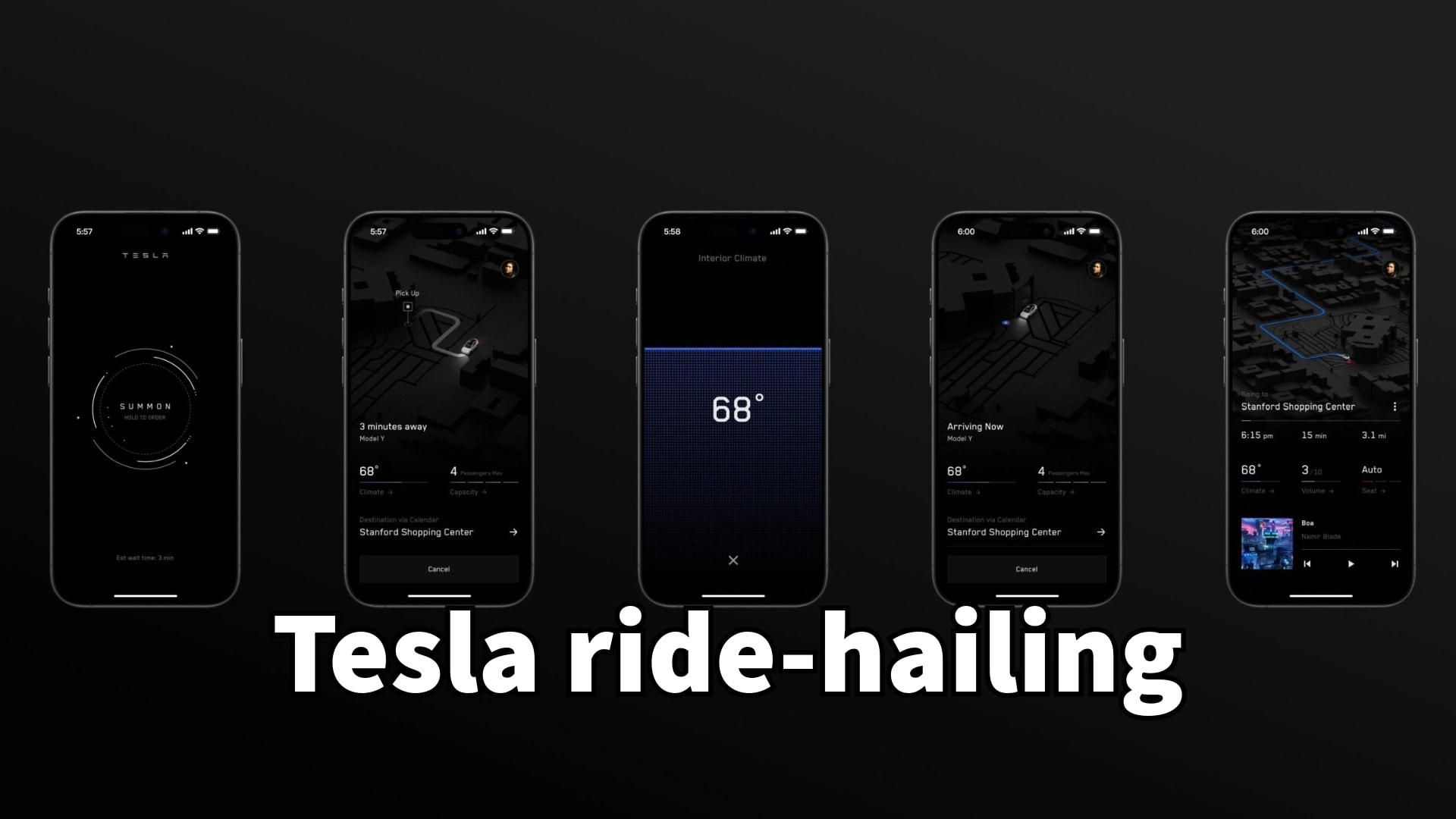
Given Elon Musk’s recent pivot to robotaxi, we expected Tesla to offer more details during the first quarter earnings call. Instead, Tesla executives bluntly refused to answer the questions while teasing a new ride-hailing feature coming to current vehicles. Musk also said that Tesla is in talks with major OEMs to license the FSD software, although this was not the first time he said that.
The robotaxi will be the only Tesla vehicle (so far) to use the revolutionary unboxed vehicle manufacturing process. In contrast, the affordable EV will be produced on Tesla’s existing production lines. This means that the cost reduction would not be as big as Tesla hoped, but the main benefit is that it would arrive sooner than anticipated, probably by the end of the year. This further confirms that the robotaxi that Tesla will unveil on August 8 will not enter production anytime soon.
Instead, the EV maker revealed plans to bring ride-hailing capabilities to existing vehicles. Tesla shared a picture of how the ride-hailing features might be integrated into the Tesla app. Based on the app interface’s drawings, users can “summon” a driverless Tesla from the app. They can also adjust the climate control, play music, and track the vehicle on a 3D map, all within the app.
So far, there’s no timeline for the ride-hailing service launch, but this will rely on Full Self Driving becoming a Level 4/Level 5 autonomous driving system. The FSD software showed impressive progress with the latest V12 builds, making Elon Musk confident autonomy is possible sooner rather than later. This optimism also fuels hopes that a purpose-built robotaxi, with no steering wheel or pedals, will be the right vehicle for Tesla in the near future.
Musk is also adamant that FSD progress will prompt other carmakers to license Tesla technology. During the earnings call, Musk revealed that Tesla is actively discussing FSD licensing with a major carmaker. Musk also said this a year ago during the Q2 2023 earnings call, but no contract was signed. Even if a deal is signed this time, it will take years before third-party companies will integrate FSD into their vehicles.
Tesla intends to supply the whole package as part of a potential deal. This includes not only the software but also the inference computer and the sensor suite. Musk is convinced that carmakers will want to license FSD from Tesla because nobody would buy a car without smart capabilities. He likened the situation to the iPhone and Android smartphones getting Nokia out of the market because it didn’t understand nobody would want a dumb phone anymore.










